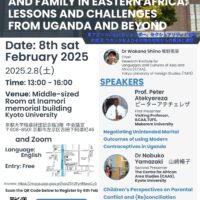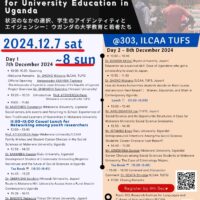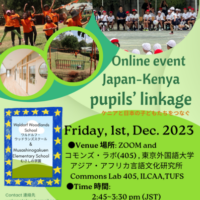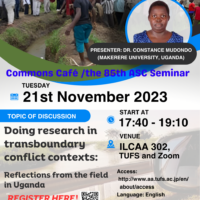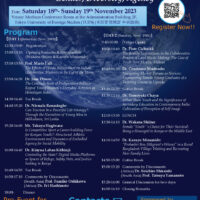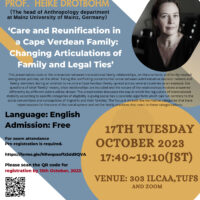AA研共同利用・共同研究課題
グローバル時代のアフリカの「若者」のキャリア志向と「現実」との交渉:東部アフリカを中心に
The 11th meeting_ 2023年度第3回研究会(通算第11回目)
Date/Time: Wed 6 Mar 2024 10:00–18:00
Venue: 302, online meeting
Language: English
Organized by ILCAA
10:00–
Meeting for publication of Japanese results
13:00–
Presentation1: Karusigarira Ian (GRIPS/ Joint researcher)
“University Students’ Activism in Uganda: Culture, the State, and Prospects”
Presentation2: Soichiro Shiraishi (Hirosaki University/ Joint researcher)
“Route to Makerere Hill: University Access from a Rural Area in Contemporary Uganda” →Cancelled
[Abstract]
Shifting Dimensions of Hybrid Authoritarianism in Uganda
By Ian Karusigarira (GRIPS/ Joint researcher)
There is a growing interest in the shifting dimensions of authoritarian rule most od Africa. For the purposes of this proposal, two major aspects are to be elucidated: one, the vibrant change dynamics taking place in the opposition parties, two, the continuity in the authoritarian regime. How has authoritarian rule been reinforced by historical events, civic perceptions, and participation in Uganda? Drawing on some of the recent gains earned by scholarships on authoritarianism, my practical experiences as police detective and living within an authoritarian system, and, my Ph.D. research on the relational historical analysis of revolutionary regime culture and survival in Uganda, this proposed post-doc project aims to: (1) establish the dynamics of authoritarian regime survival, cutting open the undercurrents of exclusionary and violent regimes in most of Sub-Saharan Africa, (2) interrogate the changing dimensions of oppositional forces and the implications to the conceptual and epistemological questions about the nature and practice of research knowledge on authoritarianism in Africa. The study will elucidate the contingency of events, interaction, and/or outcomes of interest that occur in the actual historical/real-worlds of authoritarian rule in Africa especially Uganda while dissecting the relationality in and between repression (both physical and online), ideological apparatus, history and memory of violence, identity politics, neopatrimonialism, co-optation of eminent opposition, and conflictual relations among dissenting voices.
 en_US
en_US ja
ja